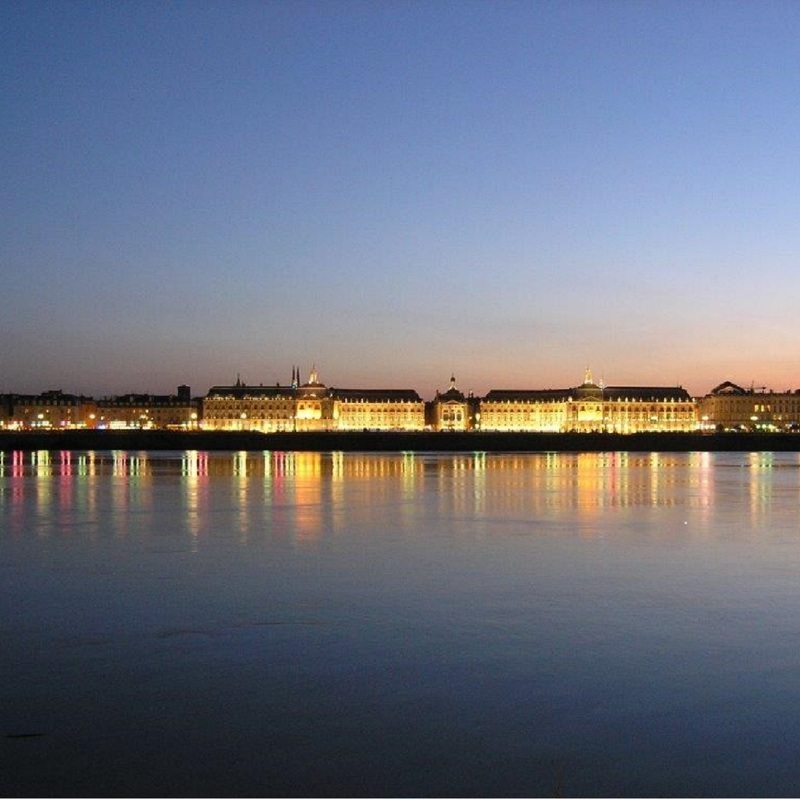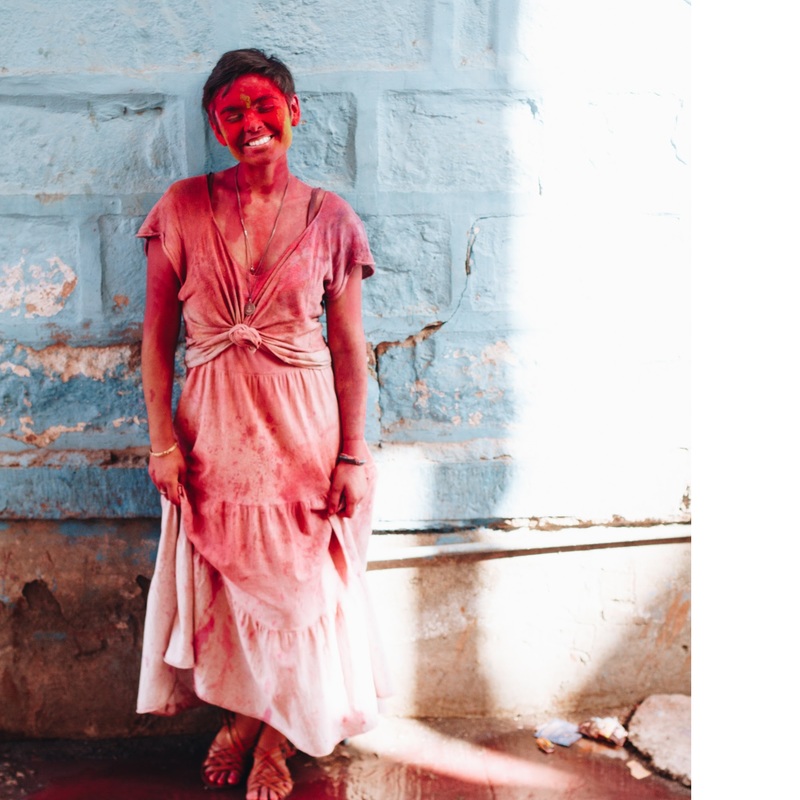Search
To Bordeaux – With Love. A Homage in Three Languages
DOI: 10.17160/josha.8.5.795
For the next glass of Bordeaux, it's not far, everywhere in the world. The way to the city of Bordeaux can be very long, but it is worth it. This is a trilingual tribute to a city with which the authors have developed a very personal relationship over the decades. Especially since the turn of the millennium, we have witnessed with great enthusiasm how the city is developing into a French jewel. Not only a student city, but also a city of French high culture in all areas, history, sciences, arts and last not least French culinary. On the way to the Atlantic, a detour is worthwhile. What could be better than a day in Bordeaux! Gerhard Steinmann, International Academy of Sciences, Humanities and Arts, Freiburg i.Br., Germany with photos of Claudia Steinmann-Fölger and others
Zero Sero
DOI: 10.17160/josha.8.5.790
According to UNAIDS, 37.6 million people globally were living with HIV in 2020. In 2016, the United Nations General Assembly’s Political Declaration on Ending AIDS established the 90-90-90 targets: (1) to diagnose 90% of people living with HIV, (2) to secure the treatment for 90% among people who knew their status, and (3) to reach virally suppression in 90% of people accessing treatment by the end of 2020. As Undetectable = Untransmittable, AIDS should be controlled by 2030. In this article, originally published in El Gato y La Caja, Dr. José Barletta discusses the relevance of viral suppression in HIV+ patients.
Tooth Dyeing Tradition among the Kanuri Speaking People of Borno, Nigeria
DOI: 10.17160/josha.8.5.789
By now, there is much research on almost every aspect of Kanuri speaking people of Borno. Unfortunately enough, no attempt has been made, so far, to document the tooth dyeing tradition among them leaving a wide gap begging for a research. This paper therefore is an attempt to fill this lacunae by discussing the ingredients, techniques and significance of tooth dyeing among Kanuri speaking people of Borno. To achieve its goals, this study adopts a multi-disciplinary approach: a historical framework and an ethnographic framework. The paper argues that the tooth dyeing tradition has been one of the long beautiful cultural aspects of not only the Kanuris but also other people around the world. But for the Kanuris, it is used in natural ways for maturity, beauty, civilization and medical purposes such as prevention of mouth odour.
Editorial Volume 8, Issue 4
DOI: 10.17160/josha.8.5.787
This issue is a great example for the strength at Josha. Diversity! We hope you enjoy reading our articles from all around the world. Issue 4 features articles in Spanish, Italian, German, English, from countries like Nigeria, Australia, Germany, Italy, Kosovo, Colombia, USA, Argentina in the fields of Medicine, Humanities, Music and Arts, Modeling and Simulation. In addition to the various articles we also nominated our Demetrios Award 2021 winners. Read our editorial for more information about the authors and their great work! What a joy to feel connected with the world through reading. We are looking forward to publishing with YOU!!
Clitoridectomy among Shuwa Arabs of Borno, Nigeria
DOI: 10.17160/josha.8.4.785
The study focuses on the origin, nature and effects of Clitoridectomy among Shuwa Arabs of Borno, Nigeria. Clitoridectomy comprises of various procedures which removes or damage the external female genital organs for no medical reasons or purpose. It has no health benefits and is recognized to cause severe short- and long-term damage to both physical and psychological health of the victims. The study reveals that despite the negative health consequences, yet the Shuwa Arabs still adhere to the practice and consider it as normal as the circumcision are normal in almost every other community.
The Last Leap of Vere Gordon Childe: His Final Days
DOI: 10.17160/josha.8.4.784
Vere Gordon Childe, aged 65, the leading prehistorian of his day, died in a fall off Govetts Leap in the Blue Mountains of Australia. The manner of his death divided people. Those in contact with him during the five months of his return to Australia from the UK agreed with the coroner that the fall was accidental. He had been cheerful, friendly, optimistic and had plans to study the geology of the Blue Mountains. His colleagues in the UK, having been told that he intended to jump off a cliff when he got to Australia, took the view that he had committed suicide, attributing it the absence of a close relationship and believing that his intellectual work had come to an end. After a hiatus of several decades, there was renewed interest in Childe’s work. Even though many of his ideas had not stood the test of time and his Marxist interpretations were debunked, his role in establishing prehistory as a discipline was acknowledged.
The Together Project: Holi in Jodhpur, India
DOI: 10.17160/josha.8.4.783
The Together Project is a series of photo essays inspiring us to see humankind in a different light by honoring our cultural differences as well as the understanding that we’re all cut from the same cloth; we’re members of humankind. The Together Project is here to inspire you to learn about others and to ignite a sense of curiosity and compassion towards those who live in different cultures from our own. In this photo essay, Johanna shares her experience in Jodhpur, India celebrating the Holi festival. She shares her experience, the reason Holi is celebrated, as well as the health benefits of the festival.
A Proposed Methodological Framework for the Spatial and temporal Calibration of a Large River Basin Hydrological Model
DOI: 10.17160/josha.8.4.782
Under a whole system scale analysis, hydrological modelling of large river basins is critical to understand the behaviour of regional phenomena and cumulative impacts. Many hydrologic models contain parameters that are difficult to measure or do not have a direct physical interpretation, so it is necessary to estimate these model parameters using a calibration procedure. However, observations for calibration and validation are only available for specific locations and more formal procedures are necessary to regionalize model parameters in areas with limited or without data. In this paper, a methodological framework for the spatial and temporal calibration of a large river basin hydrological model is proposed that uses a cluster method to group sub-catchments of the macro basin model, based on its morphometric characteristics, under the assumption that catchments in the same group share the same parameter values in the model.
The Importance of non-surgical Periodontal Therapy in Patients with Drug gingival Enlargement - Case Series
DOI: 10.17160/josha.8.4.781
Induced gingival overgrowth with medication is a side effect of systemic therapy with anticonvulsants, immunosuppressants, and calcium channel blockers. It can emerge in patients in close relation to a number of general variables such as age, genetic predisposition, and length of medication or local factors such as preexisting gingival inflammation. Dentists and general practitioners should be trained to make prompt diagnoses by identifying oral symptoms that indicate a systemic effect of various medications.
Life after the Pandemic
DOI: 10.17160/josha.8.4.780
The most difficult thing about re-entering into the world is learning how to deal with the past and what was left behind. Some are rushing to get back to the old way of life while some of us are still struggling to make sense out of all the pain in the midst of it. Returning to the way things used to be will never happen for those who have lost family members — sometimes multiple — to a senseless virus that wreaked havoc on the way we see the world in this pandemic era.









